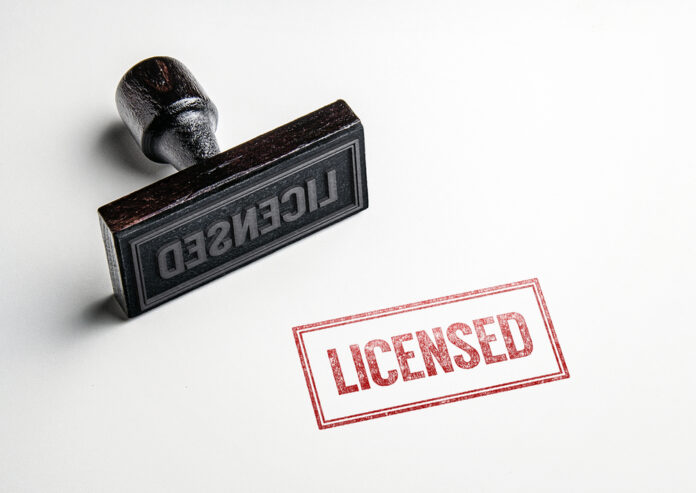A successful career in the real estate sector can be a lucrative prospect for professionals at different stages. While there’s no definitive path to becoming an accredited real estate agent, you need to complete several activities and milestones.
Getting an online real estate license enhances your credibility in the industry and opens more opportunities. Regardless of your target niche in real estate, a license can impact your earning potential and overall success. Here are some vital steps to help you acquire a real estate license and start a thriving career.
1. Understand State-Specific Education and Licensing Requirements

A real estate license doesn’t require a degree; in most cases, you need a GED or a high school diploma. While high school qualifications aren’t necessary for the license, most real estate education institutions require equivalency before enrollment.
Also, most states require permanent residency for real estate licensees. Some states might perform background searches to verify identity and criminal or behavioral predilection. Most importantly, all states require applicants to have attained the legal age.
2. Take the Pre-Licensing Course
You can complete pre-licensing requirements in various ways. Real estate schools, universities, and companies offer study materials, classes, and licensing programs.
Therefore, researching the institutions is vital since organizations with outstanding reputations can accelerate licensing timeframe.
Different institutions may have varying schedules for the learning modules. Some schools have different classes in session during specific times, while others can allow you to go through the coursework on your own schedule, depending on your flexibility and other life commitments. Also, the cost can vary depending on your choice of school.
3. Apply and Pass the Licensing Exam

Once you go through the study materials and feel confident in your grasp of the concept, you’re ready to take the exam. This milestone involves application, registration, and fee payments through third-party test providers.
Some states don’t require you to complete all the mandatory study hours before submitting your application. This can shorten the licensing timeframe since you can complete the remaining credit hours while waiting for the exam application approval.
The minimum pass mark can vary, but the average across most states is about 70% -75% of the questions. Typically, you can retake the test if you’re unsuccessful on your first attempt. Nevertheless, it’s not possible to exceed allowed attempts within a certain timeframe.
4. Apply and Activate Your Real Estate License
After acing your licensing exam, you can submit the application for the real estate license. You’ll need the exam transcripts and proof of course completion from the institution where you took the course. The average time to process and issue the license can be one week and two months.
Once the regulatory organization receives and processes your application, they mail your real estate certification before adding you to the online database for licensed real estate agents.
However, it’s important to understand that you don’t have the legal authority to start practicing until you get the license from the state.
5. Find a Real Estate Brokerage Firm and Become an Agent

While earning your license is a vital milestone, you may not start selling real estate property right away. Most states require new license holders to work as agents under a real estate broker for at least two years.
Real estate brokerage firms are agencies or offices where real estate agents are attached. And since you need to start earning, looking for a brokerage before completing the coursework is prudent. The brokerage can determine the work volume and mentorship available.
National franchises have advanced training programs and career development resources for beginners. However, local brokerages often provide custom training to help you advance your career quickly. In addition, virtual brokerages are becoming more common thanks to technological advancements.
Understanding the commission structure is critical before working with a real estate brokerage. In conventional split plans, the commission is split equally between the agent and the brokerage.
On the other hand, high-split plans have high commissions, but the structure often has high monthly charges. You can also get a hybrid program that offers commissions depending on the project and target achievement.
6. Join the NAR to Maximize Your Career Opportunities
While most people use realtor and real estate agent titles interchangeably, they have distinct peculiarities. Realtors and agents are authorized to serve clients, but you must acquire and maintain a NAR membership to claim the Realtor title.
The NAR is a vast trade association with over 1.5 million members from different professional backgrounds. Typically, most accomplished and reputable real estate experts are active members.
Nevertheless, NAR membership is not mandatory, but it’s recommended because it offers unique opportunities to deal with valuable clientele and transactions with generous commissions.
NAR membership is necessary if you want to leverage the Multiple Listing Services (MLS) and access listings from other realtors. Non-members can still work and handle real estate transactions but are locked out of the MLS, limiting their earning potential.
7. Keep Learning and Maintain Your License

Getting your online real estate license is the first step to building a successful career. But you need to meet advanced education and renewal requirements to maintain your license. And since the requirements may vary between different states, it’s vital to understand applicable regulations.
Typically, state governments require agents to go through continuing education within a specific period. For instance, real estate agents in California must complete 45 CE hours every four years. The courses cover various topics, including fair housing, ethics, contracts, and emerging legal requirements.
Some states may require you to complete mandatory real estate courses like Agency Law. However, depending on your current situation or medical issues, you can be exempted from some requirements. You need to file a license renewal application, the necessary compliance documents, and fees to maintain the license.
Bottom Line
A successful real estate career may seem like a simple process, but it involves various requirements and milestones. However, obtaining an online real estate license is the most critical step toward building a rewarding real estate career.
The process ensures practicing real estate professionals have proven skills and knowledge to offer quality services and uphold strict ethical standards.









